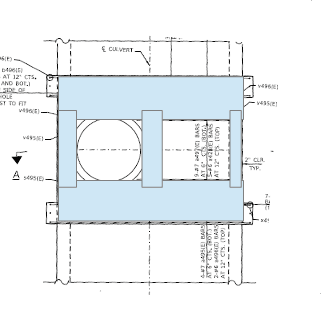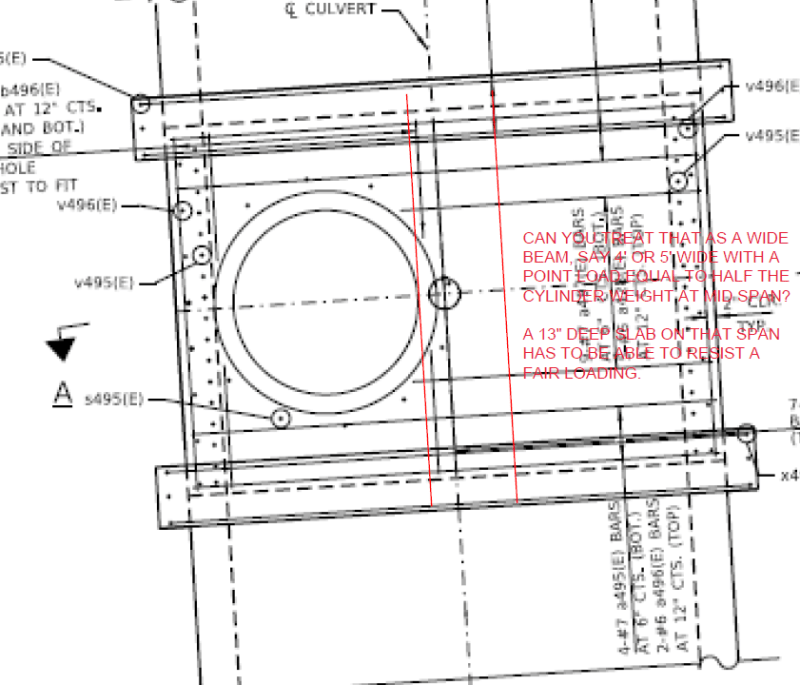I am designing a top slab for a junction chamber. The junction chamber consists of connecting 2 ends of a 10 feet wide x 4 feet high concrete box culvert.
As part of this design, the top slab has an opening for a 4 foot diameter manhole. The top slab is 1'-1" thick. The manhole is ~10 feet high and weights 8,900 lbs. Apart from the manhole, the slab will be supporting 10 feet of soil (unit weight 120 pcf).
How can I design the top slab? What assumptions do I need to make?
As part of this design, the top slab has an opening for a 4 foot diameter manhole. The top slab is 1'-1" thick. The manhole is ~10 feet high and weights 8,900 lbs. Apart from the manhole, the slab will be supporting 10 feet of soil (unit weight 120 pcf).
How can I design the top slab? What assumptions do I need to make?


